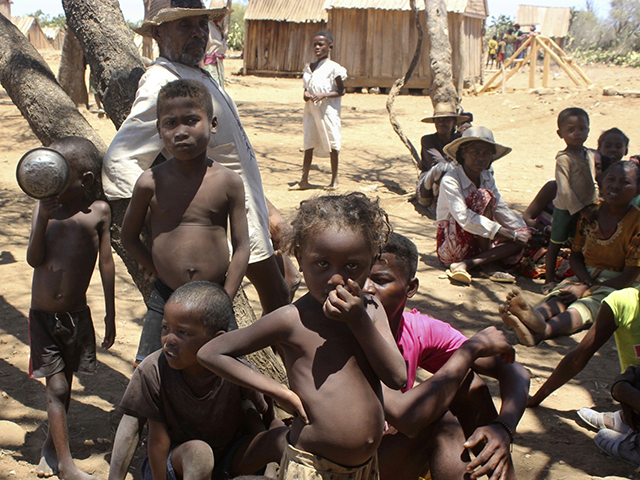A coalition of public health advocates called the International Baby Food Action Network (IBFAN) issued an unusually strong condemnation of UNICEF this week for supporting the use of a highly processed paste to feed impoverished children.
IBFAN claimed the scientific trials cited by UNICEF to recommend the paste as safe and effective were compromised by its manufacturers, including Nestle, Heinz, and especially French food company Nutriset.
At issue is a class of products known as small-quantity lipid nutrition supplements (SQ-LNS), which are “ultra-processed” pastes made from oil, milk powder, legumes, and various nutrients.
In February, UNICEF issued a “guidance note” that supported the use of SQ-LNS products for “the prevention of malnutrition in nutritionally vulnerable children 6-12 months of age and in populations in which child undernutrition is prevalent and dietary quality is very poor.”
“SQ-LNS is not a stand-alone intervention but when integrated into a core package of essential nutrition actions – including quality counseling on continued breastfeeding and optimal complementary feeding – can be protective in contexts where access to diverse diets is limited,” UNICEF said.
IBFAN released a statement last week that blasted UNICEF for using “unethical and questionable research” to promote an “unsustainable strategy with nutritional risks.” The statement called upon the U.N. children’s agency to “reconsider and halt its support for SQ-LNS until the wider risks” have been “evaluated by people free of conflict of interest.”
According to IBFAN, those conflicts of interest included heavy involvement by manufacturers in the safety studies. Nutriset was involved in “four out of five systematic reviews used as evidence in the UNICEF communication,” while IBFAN found “conflicts of interest in at least 10 out of the 23 trials.”
“With concern we note that the solutions promoted for addressing child malnutrition, especially its prevention, are becoming commercialized and medicalised with the increasing use of nutrition products as “quick fixes,” IBFAN said.
“In this initiative, the long term vision of children sustained by local nutritious foods is absent. It seems to be built on dependence by external actors,” the statement said.
The health advocacy coalition was concerned that UNICEF’s advisory note could be misinterpreted to present SQ-LNS as a “magic bullet complementary food,” rather than a potentially useful “fortification” to a proper diet. The statement specifically accused Nutriset of overselling the advantages of its “Growell” and “Enov’ Nutributter” pastes for children aged 6 to 24 months.
IBFAN was concerned that UNICEF made “totally unrealistic” assumptions about the ability of caregivers in impoverished countries to properly use and store the ultra-processed pastes, which have very short shelf lives once their sealed packets have been opened.
The IBFAN statement repeatedly expressed worries that SQ-LNS products are more expensive to deploy than UNICEF seems to believe, and investing heavily in the commercially-produced pastes could divert much-needed funding away from locally-produced foods and “other health and support services and community initiatives.”

COMMENTS
Please let us know if you're having issues with commenting.